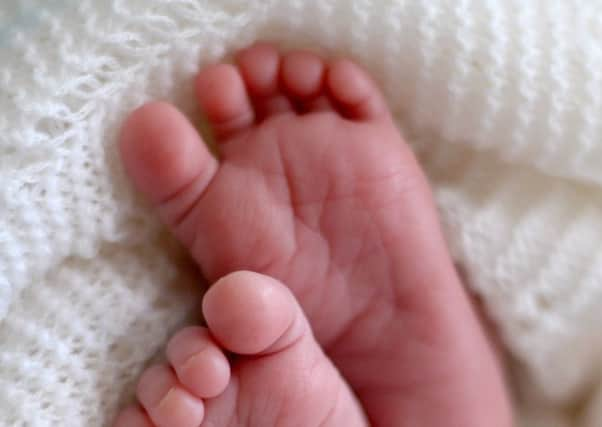Christine Jardine: We need to talk more about grief of losing a baby


But this was so much more than a television programme. This was public broadcasting which really did serve a purpose.
For the first time in longer than I care to remember, I was desperate to watch something at the first available opportunity that wasn’t about baking, or a comedy or a political show.
Advertisement
Hide AdAdvertisement
Hide AdBBC Alba’s Labour of Love’opened a window on a subject that for too long society has shied away from talking about. And, by hiding away, we denied generations of parents the support and recognition of their grief that they need when they lose their baby.
So while at first glance some people might question whether this is an appropriate subject for a politician to comment on, surely this is where we have a responsibility to nurture an understanding and compassion not just in individual cases, but in society.
Last week was Baby Loss Awareness Week. At both Westminster and Holyrood, politicians recognised and debated the topic, with a genuine desire to offer support and empathy and, where possible, foster change.
Many of those at the parliamentary events had personal experiences that they shared.
Although I have been close to family and friends whose baby has died I still can’t imagine how painful it must have been for them. Or the strength it took for the parents in the programme to relive the trauma they had been through.
And they did it with a purpose which was completely altruistic. After watching Labour of Love’ I called one of the mothers who had taken part. Annie Lundon is an old friend.
I was her tutor at university, my late husband worked with her and we knew what she and her family were going through at the time.
But watching the programme – partly because I knew she would be in it – brought home to me, and possibly many others watching, really for the first time, how little I had appreciated what she had been through when she lost Grace.
Advertisement
Hide AdAdvertisement
Hide AdIn the programme, she talked about being told, some years after, that she had been suffering from post-traumatic stress syndrome and how that felt “like a weight being lifted from me when someone said that what you’ve been through is a terrible thing”.
That made me realise how much more we as a society have to do to help. How much we haven’t yet done.
We still need a taking of responsibility and recognition by care services of the support that’s needed.
And an understanding that every individual may need something different and for more than just the immediate aftermath.
More importantly, Annie told me that talking about it had not only helped all of those who took part, and brought them together, but that it had helped so many others.
Quite a lot of older women had, she told me, been in touch since the programme to say how pleased they were that it had been made.
I’m glad they had the courage and foresight to do it too.
By sharing their personal experiences with us, they have created a public awareness and desire for action. And it is up to those of us in elected positions to ensure that action is carried out.
During my career as a journalist, I remember so many issues like this one where an initial opening up led to a change in attitude.
Advertisement
Hide AdAdvertisement
Hide AdIt’s not so long ago that we did not talk about mental health issues. We have made progress there, although we have a long way to go yet.
Sexuality too was a taboo that is now openly acknowledged and respected.
And while it might seem strange to reference them in the same space as the loss of a child, those issues are also personal, traumatic and something we shied away from talking about both as a society and individuals.
One of the things that has struck me throughout this week has been that it is those who have not faced the trauma of losing a child who are less willing to talk about it.
We don’t quite know how to broach the subject and yet, as my friend told me, it made such a difference to her when they did.
So what now? The danger is that, with Baby Loss Awareness Week behind us, we now move on.
We don’t think about it until this time next year. We should not forget that we do not have that luxury.
For those it has affected, it will always be there. So please, let’s take that on board. Let’s recognise that there are people in all of our lives who have been through a trauma we cannot appreciate and do what we can to lessen the trauma for those who, heartbreakingly, will have to face it in future.
